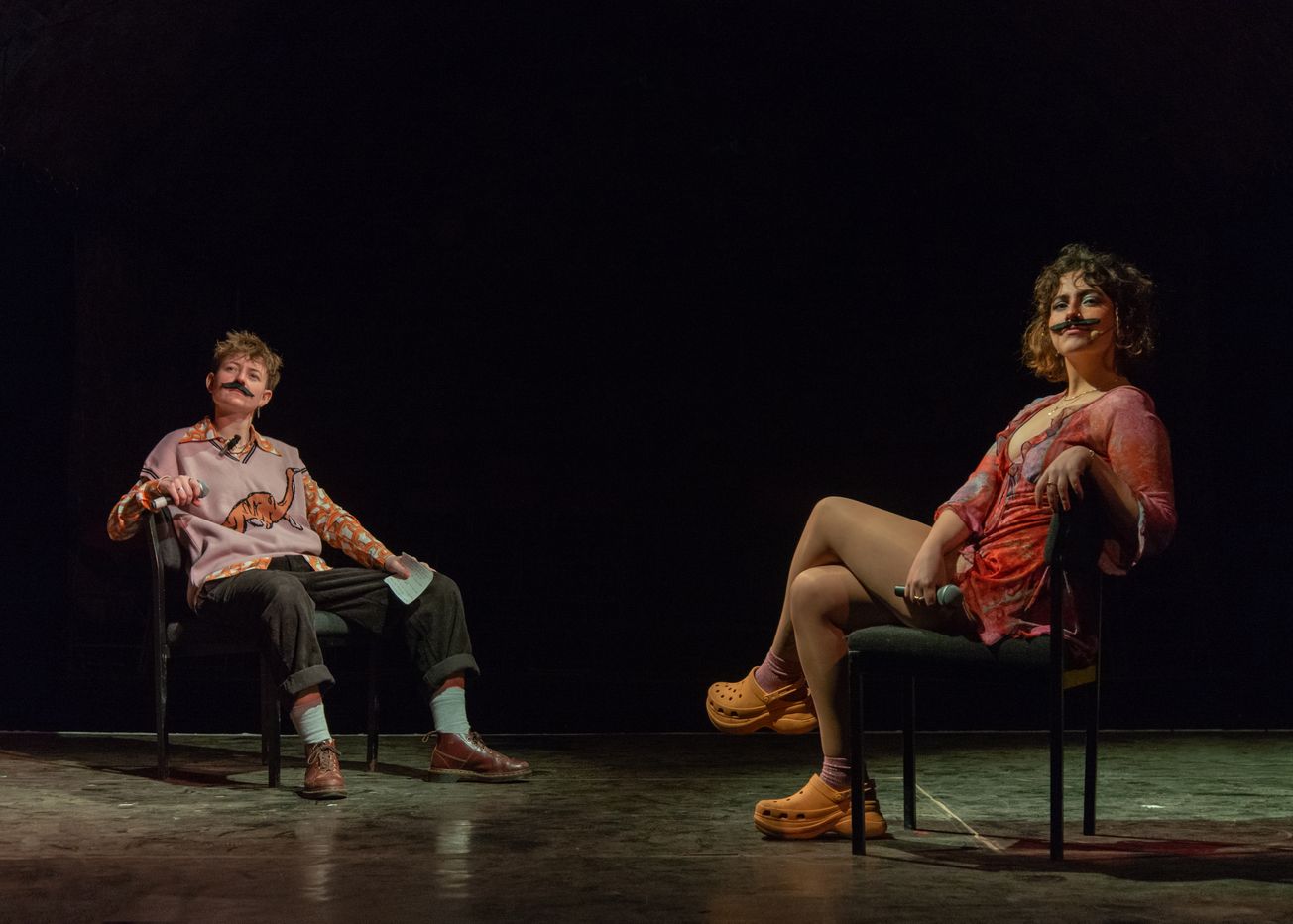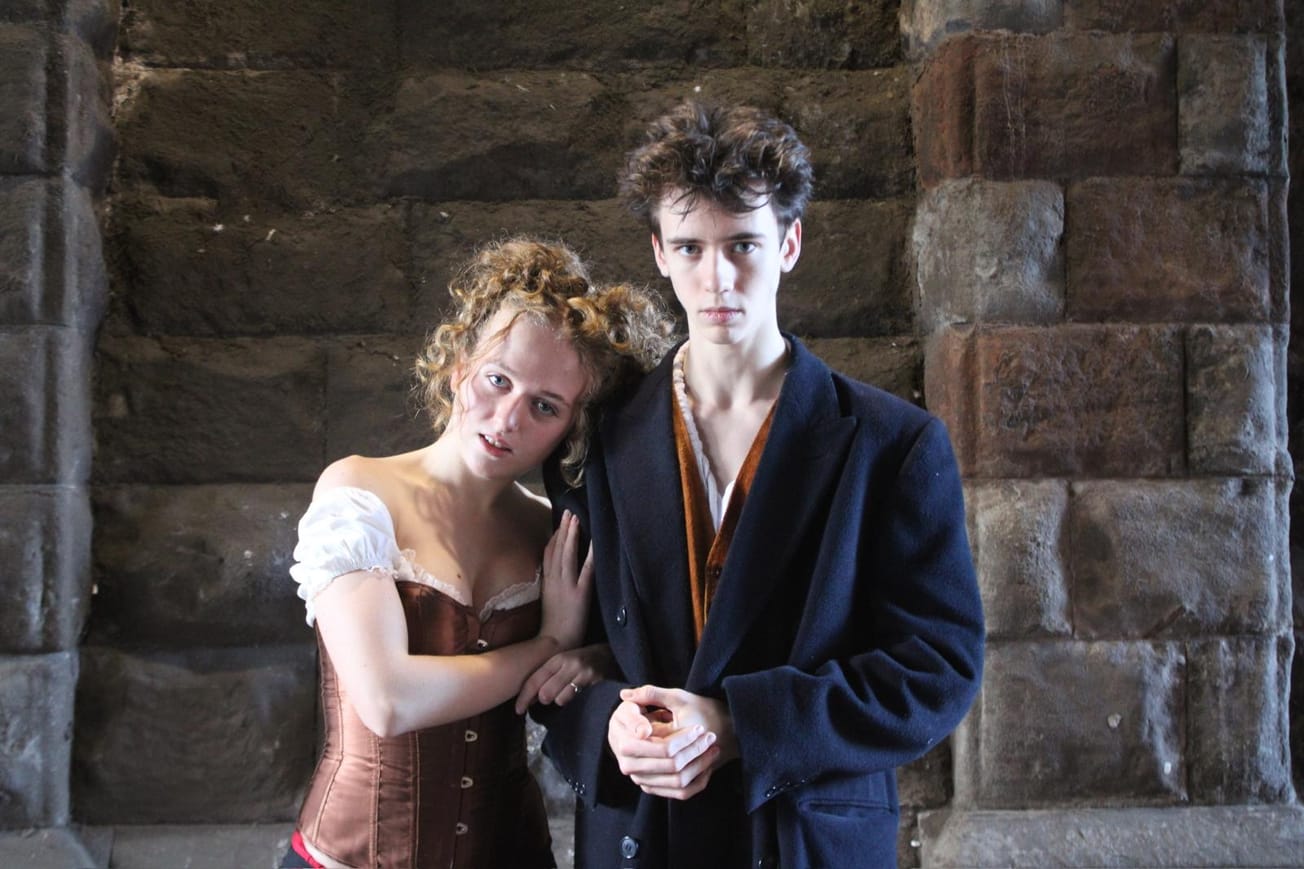By Bobbi Carsley, First Year English Literature
The entrance to the Loco Klub may be hard to find, yet upon entering the intimate arts and music space I felt myself grateful for having seemingly stumbled into a hidden world. Situated underground in an old tunnel complex by Temple Meads’ passenger shed, the Loco Klub may appear an unconventional performing space that upcycles the abandoned. But the intimacy of the night’s performance of Ladyfriends was apparent before the play had even begun. A stagehand ushered the audience through a red curtain (which I confess I had initially mistaken for a wall) and through a series of empty tunnel rooms to the stage area.
Clodagh Chapman, the play’s writer and director, fostered a personal connection with the audience by providing a brief accessibility arrangements introduction before the play. A succinct rundown of the unrestricted exit and re-entry policy and a demonstration of the range of light and sound levels that would occur in the play made the production inviting to a broader audience who may feel intimidated in theatrical spaces.
Once the performance began the two sole characters of the play were introduced: Christabel Pankhurst and Annie Kenney played by Ellie Mejía and Lucy Mackay respectively. Yet despite the obvious setting within the suffragette movement, both protagonists are keen to assert to the audience that the play is “not really about that.” Instead, the emotional connection and romantic relationship between Christabel and Annie takes central focus.

Chapman writes the dialogue in a mixture of first and third person to allow comedic fluidity as Christabel and Annie switch between their present early 20th century lives, to then speaking retrospectively about their relationship in a manner that imitates a later, assumed male, historians’ voices who denies their relationship. This disjunction between the reality of women’s lives in lesbian relationships in history and the erasure of these relationships in historical accounts is the basis of Chapman’s play.
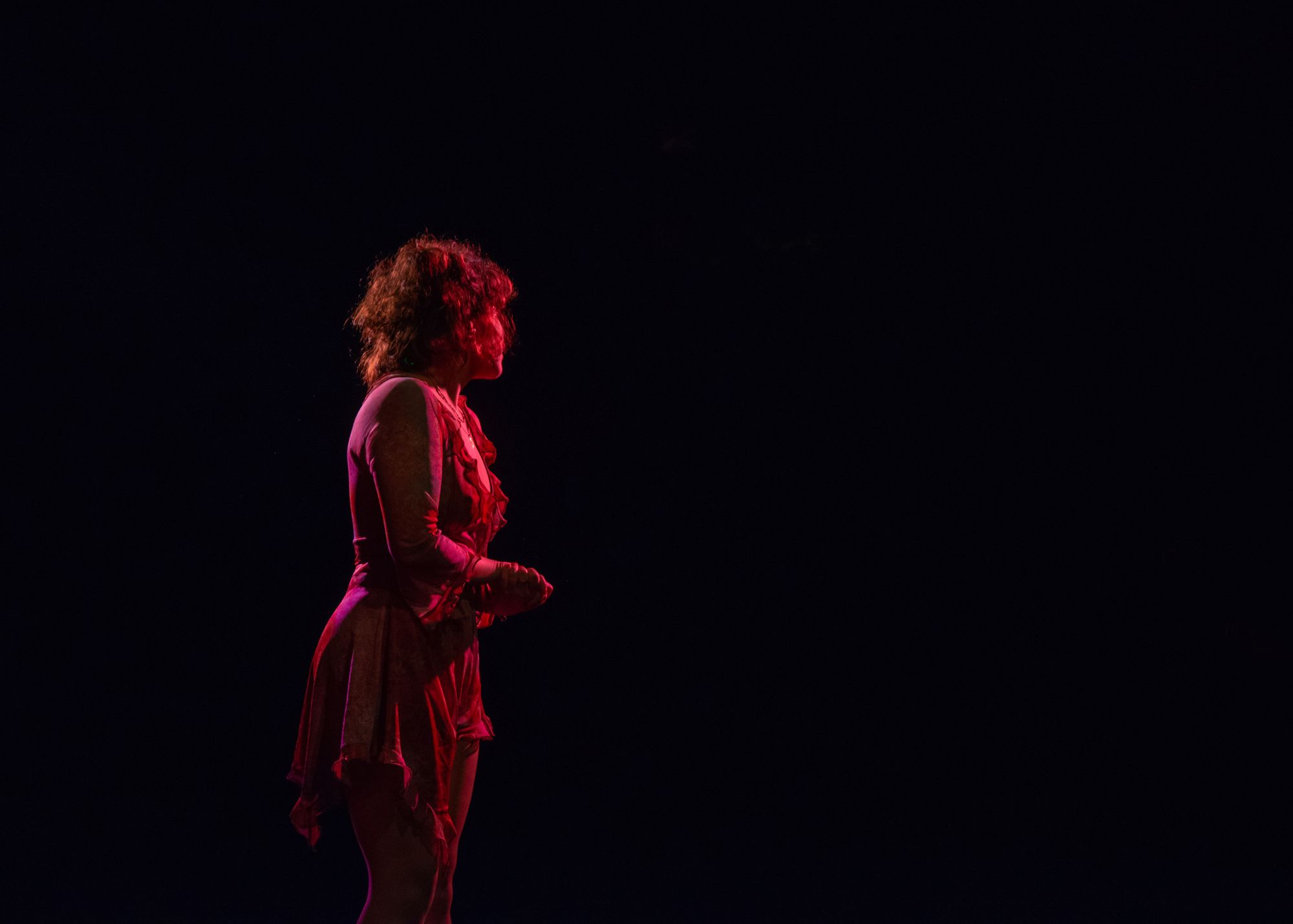
However, the play does not take the route of exuding an obvious, and completely justifiable, anger at this erasure. Instead, the play feels like the rewriting and correction of those biasedly revised accounts and a celebration of the truth. This works to subtly but firmly allow Christabel and Annie to speak for themselves when they have been spoken over. The simple staging of the play on a small platform with minimal props gives ample space for these women's voices to be exclusively heard.
Both Ellie Mejía and Lucy Mackay provide strong performances in a manner that makes it apparent they are passionate about the play’s subject matter. Their comedic timing brings Chapman’s script to life, such as their ingenious impressions of patronising male directors and talk show hosts (indicated by the slapstick donning of black stick-on moustaches and exaggerated manspreading) in a skit scene.
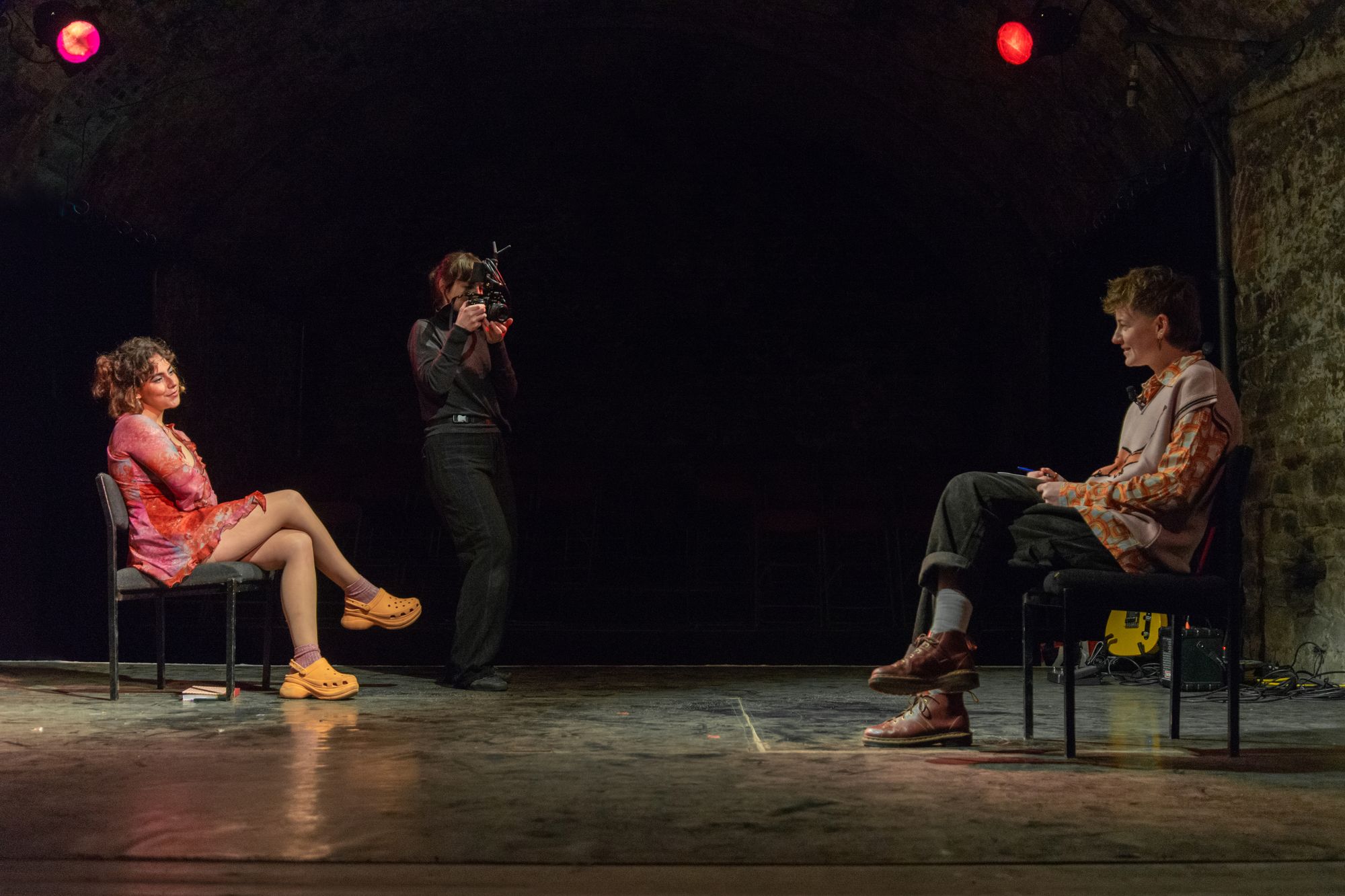
A videographer, Christina Holmbek, joins the two actors on stage throughout the play, with the video feed being showed on a small television to the side of the stage. Initially it was unclear whether her filming distracted the audience and detracted from the intensity of Mejía and Mackay’s chemistry. Nevertheless, by the end of the performance Holmbek’s role emphasised the idea that the play provides the audience with a lens into Annie and Christabel’s true relationship.
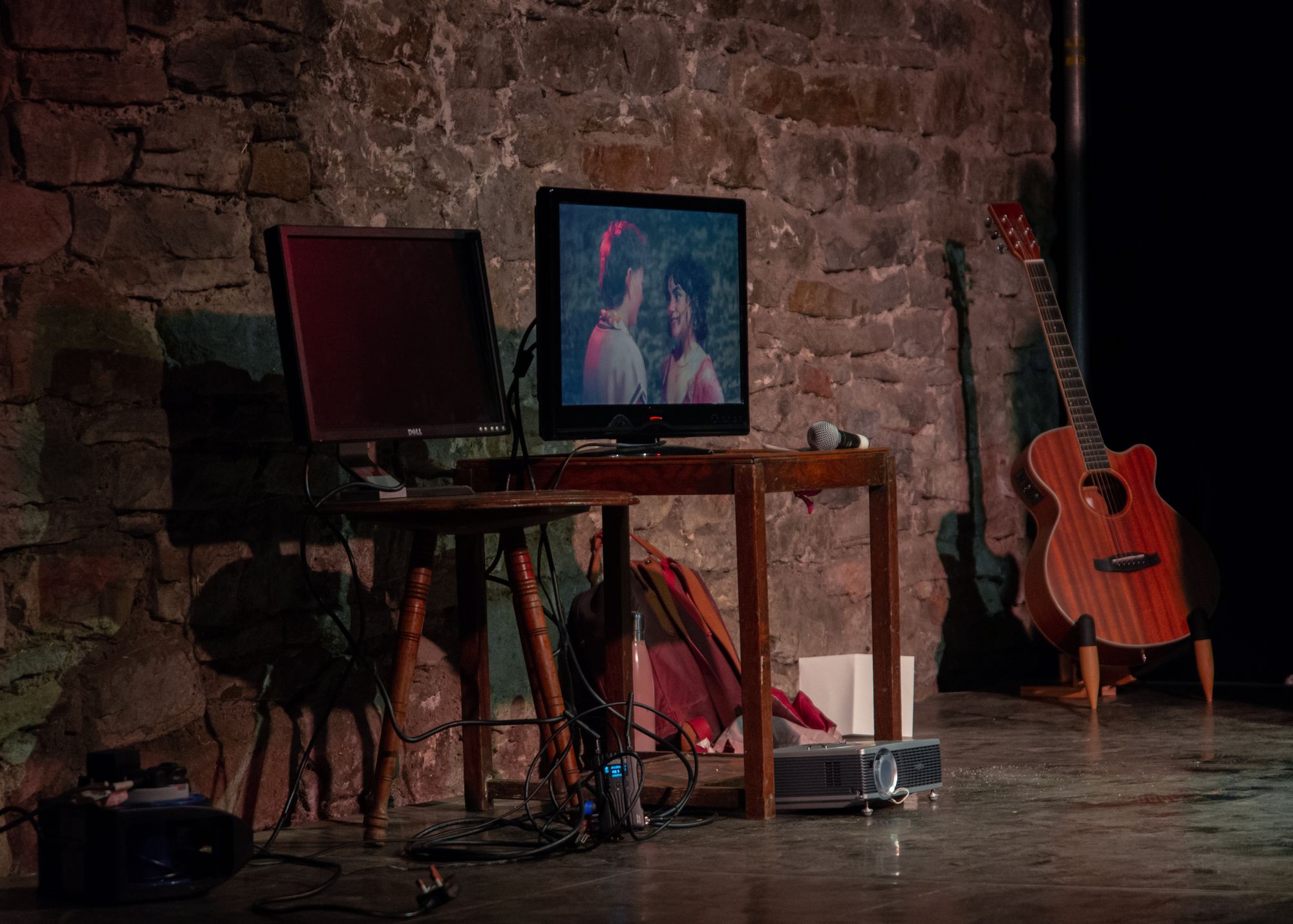
The play by no means romanticised the difficulties of lesbian relationships in time of social prejudice and persecution. But through depicting the reality of Christabel and Annie’s lives, incorporating all their struggles and complications, the joy of lesbian relationships emphasised the play’s closing words: “we’re here.”
Featured Image: Courtesy of Emrys Thurgood
Did you see Ladyfriends at the Loco Klub?

